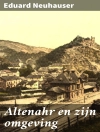George Rawlinson’s 'History of the Persian Empire (Illustrated Edition)’ is a meticulous exploration of Persia’s vast history, weaving together intricate narratives from the Achaemenid period to the Sassanian dynasty. Rawlinson’s literary style is marked by clarity and scholarly rigor, making complex historical events accessible to a wide audience. His use of illustrations enriches the text, providing visual context to the grandeur of Persian architecture, artifacts, and the cultural tapestry that defined the empire. Furthermore, Rawlinson’s work is situated within the broader 19th-century scholarly revival of interest in ancient civilizations, reflecting the burgeoning Western curiosity about Eastern history and cultures during the Victorian era. A distinguished British scholar, George Rawlinson was a contemporary of prominent historians and an expert in ancient languages, including Persian and Assyrian. His extensive training in classical literature and history, combined with his work as a diplomat in Persia, fostered a deep understanding of the cultural and political intricacies of the region. This firsthand experience profoundly influenced his scholarship and perspective on the Persian Empire, allowing him to offer readers an authentic lens through which to view this ancient civilization. This illustrated edition not only appeals to historians and students of the ancient world but also captivates general readers intrigued by the richness of Persian culture. Rawlinson’s engaging narrative invites readers to journey through the political complexities, cultural achievements, and historical significance of one of history’s greatest empires, demonstrating that the legacy of Persia continues to resonate in contemporary discussions of civilization and power.
O autorze
George Rawlinson (1812–1902) was a distinguished 19th-century English scholar, historian, and theologian renowned for his contributions to the field of ancient history. Born on November 23, 1812, in Chadlington, Oxfordshire, Rawlinson was the younger brother of the notable Assyriologist, Sir Henry Rawlinson. Educated at Ealing School and later at Trinity College, Oxford, he achieved a first-class degree in Classics and was subsequently elected to a fellowship at Exeter College, Oxford. Rawlinson’s passion for history led him to pen a number of significant works, among which 'The History of the Persian Empire (Illustrated Edition)’ stands prominent. This work captures the grandeur and complexity of ancient Persia, weaving a narrative that reflects Rawlinson’s meticulous research and deep understanding of the era. Known for his clear and engaging prose, Rawlinson’s historical writings often held a didactic purpose, intending not only to inform but also to instruct readers in moral and ethical lessons drawn from history. His literary style, which combines scholarly rigour with readability, made his works accessible to both academic and lay audiences. Rawlinson’s contributions as a historian were substantial, bringing to life the civilizations of antiquity and leaving a lasting legacy for future scholars to draw upon.












